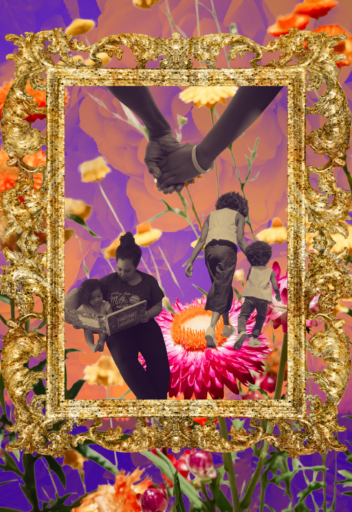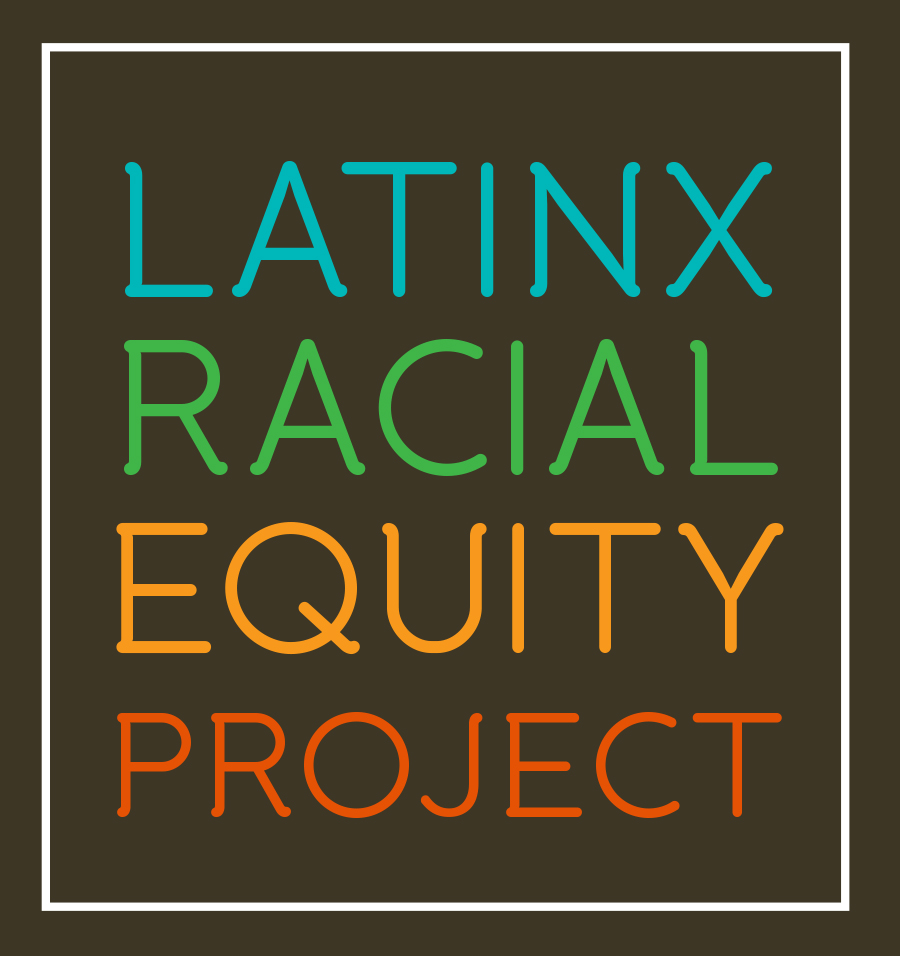
Collage by Lorena Estrella
By Lorena Estrella
Comadre is one of my favorite Spanish words. As a comadre to three little ones myself, this concept of “co-mother” is one I take very seriously. The idea that motherhood is something to be done together – in collaboration, in community – is inspiring to me.
Throughout the US, Latin America & the Caribbean, Mother’s Day is commemorated in May. In Mexico, Guatemala and El Salvador on May 10, in the US on May 13, Dominican Republic and Haiti on May 28, and more. El Dia de la Madres can bring up lots of mixed emotions from joy and gratitude to grief and pain. We honor the complexities of feelings that come up in our own relationships to our mothers and we also honor the many ways mothers and mothering may show up in our lives in expansive and beautiful ways beyond biology or traditional notions of family. The truth is that mothering and motherwork is happening all around us everyday. Mothers are fueling movements for social change, teaching in classrooms, cooking for friends and family, cleaning in homes, and healing through hands, sounds, movement and art.
Black feminist scholars like Audre Lorde, Alexis Pauline Gumbs, and Patricia Hill Collins have taught us that for Black women and Women of Color, mothering is a political act.
We say that mothering, especially the mothering of children in oppressed groups, and especially mothering to end war, to end capitalism, to end homophobia and to end patriarchy is a queer thing. And that is a good thing. That is a necessary thing. That is a crucial and dangerous thing to do. – Alexis Pauline Gumbs
Mothers deserve protection, dignity, and care. And yet, racism along with patriarchy, homophobia, xenophobia and capitalism are constantly at work to do exactly the opposite of that – making it harder and harder to choose to have and to raise BIPOC children, and narrowing societal understandings of who is “worthy” of motherhood, and whose motherhood is seen as valid. That is because so much about motherhood in our context is tied to whiteness and preserved for cis-hetero, middle-class white women.
In our own Latine communities, there are prevailing narratives that dominate our social imagination around motherhood that leave many out. From the pop-culture stereotypes of the Latine “selfless hardworking mom” to the “reactive chancela-throwing mom” to the “sweet and sassy abuelita”, these stereotypes are often informed by history and racialized ideas around gender, sexuality, skin color, language and class. Notions of “sexiness, femininity and softness” are often ascribed to lighter skin or white Latines, while more “hard, masculine and angry” notions are designated to Black and dark-skinned Latines. These tropes are also typically able-bodied and straight. These stereotypes impact the way we relate to our own mothers, ourselves, and our community, but also how policy and laws are made that impact the lives, livelihood and bodies of Black and Indigenous Latine mamas.
Harmful stereotypes like “the welfare queen” and “opportunist migrant mothers” are tools of white supremacy to criminalize, dehumanize and oppress mamas that are working to provide a future for their children and families. Given the ongoing attacks on reproductive rights and rising anti-immigrant rhetoric, staying vigilant to how these narratives show up in our lives and in the news is essential in disrupting white supremacy.
This also means working to create fuller and complex narratives about Latine mothers that reflect the realities we experience in our everyday lives. Stories that showcase the challenges, joys, and innovations in which Black and Indigenous Latine mamas are navigating a world of motherhood and parenting not built for us, and building a future that is healing and freer.
This May is also Mental Health Awareness Month and the connections between mothers, motherhood, and mental health are tightly bound together. Breaking mental health stigma is still needed in many of our communities, as well as breaking down barriers to access to care and resources. There is healing to be done to contend with how we were or weren’t mothered, how to hold grace for ourselves and our mothers, and how to look towards raising the next generation of healthy and free children. Below are resources that explore both personal and political ideas about mothers and mothering.
Reading List resources:
Essays
Vanessa Mártir | Writing the Mother Wound, Unmothered Raising & Writing The Mother Wound: A Mother’s Day Anthology – Vanessa is the founder of the Writing Our Lives Workshop and the Writing the Mother Wound Class, which she teaches in NYC and online.
Elisabet Velasquez | I Had To Leave My Mother So I Could Survive – Elisabet Velasquez reckons with a lifetime of disharmony with her religious, mentally ill mother.
Rochaun Meadows-Fernandez | Finding Freedom in Black Motherhood – Rochaun Meadows-Fernandez reflects on Black motherhood and breaking out of binaries that racism and intensive mothering have created.
Social Media
Mothering While Grieving via IG @corazoncounseling
Gentle Parenting with Abuelita via Marcela Collier on Tiktok
Gentle Parenting is from Indigenous Cultures via TikTok @ladyspeechsankofa
Books
Revolutionary Mothering: Love on the Frontlines is an anthology that centers mothers of color and marginalized mothers’ voices—women who are in a world of necessary transformation.
The Chicana M(other)work Anthology is a call to action for justice within and outside academia. This volume brings together emerging scholarship and testimonios by and about self-identified Chicana and Women of Color mother-scholars, activists, and allies who, using an intersectional lens, center mothering as transformative labor.
We Live for the We: The Political Power of Black Motherhood by Dani McClain | In We Live for the We, first-time mother Dani McClain sets out to understand how to raise her daughter in what she, as a black woman, knows to be an unjust—even hostile—society.
Parenting for Liberation: A Guide for Raising Black Children by Speaking directly to parents raising Black children in a world of racialized violence, this guidebook combines powerful storytelling with practical exercises, encouraging readers to imagine methods of parenting rooted in liberation rather than fear.





